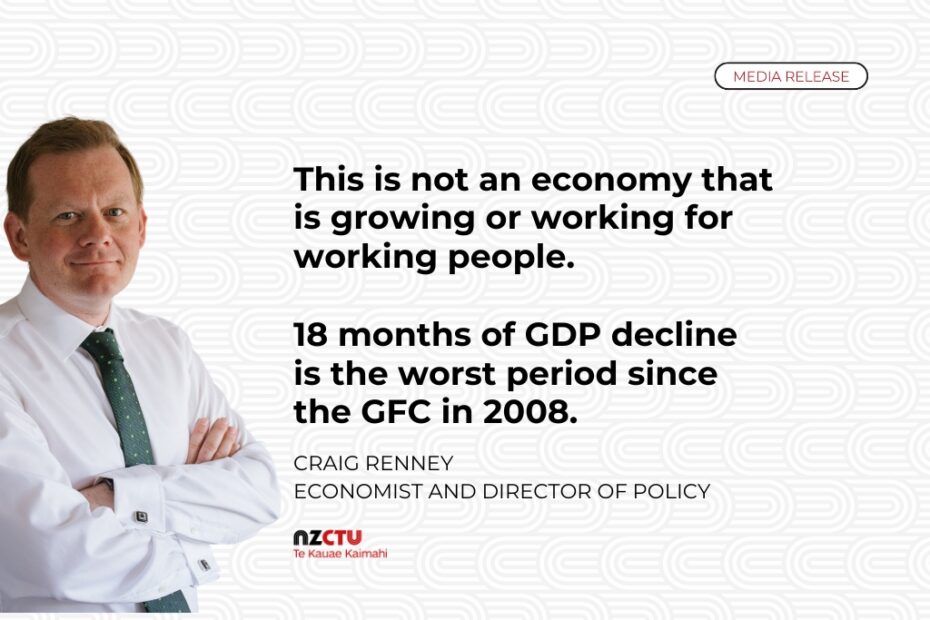Data today released by Statistics New Zealand shows that the economy grew by just 0.2% annually, showing stalled growth and weak demand. There has now been six successive quarters of decline, the worst period since the GFC. This is not an economy that is growing or working for working people.
“This data confirms the weakness of the economy at this point. We are becoming more dependent for growth on a few sectors, such as dairy exports, tourism, and rental services. Overall, our exports of goods and services fell in real terms by 0.4%. The top level growth figure of 0.2% growth is hiding real problems in the economy,” said CTU economist Craig Renney.
“On a per capita basis, annual GDP fell by 2.4%. Business investment fell 0.5% overall, led by a decline in plant, machinery and equipment. Households annual consumption of durable and non-durable goods fell 2.6%. This is a very weak set of accounts.
“GDP data showed declines in output for mining, manufacturing, construction, wholesale trade, retail trade and accomodation, transport, postal and warehousing. Falls occurred in professional, scientific, and technical services. Annual GDP growth was weaker than Australia, Canada, the EU, the US, and the OECD average of 1.7%.
“This dataset supports the view that many people will already hold – the economy is limping along. Last months Budget had no plan for economic growth, nor any ideas as to how to make the economy work for working people. Countries that have invested in their productive capacity – such as the US – have seen much stronger and more sustained growth.
“Now should be the time that we invest in Aotearoa. Growth is being held back by a lack of investment, both by the government and the private sector.
There is no confidence in the economic management of this country because there is no plan for anything except a tax cut, and reducing government investment in areas such as housing, research and development, and climate change,” said Renney.
